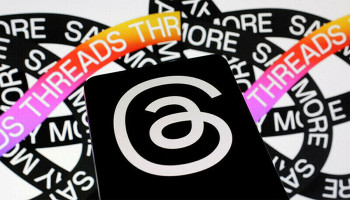
The well-known budgeting application, Mint, is set to discontinue its services. Its parent company, Intuit, plans to cease operations on March 24, 2024, recommending users to transition to its alternative personal finance app, Credit Karma.
As one of Mint's 3.6 million active users (as of 2021, as reported by Bloomberg), I relied on Mint for consolidating all my accounts into one platform, eliminating the need to log into multiple banking apps.
Additionally, Mint facilitated credit score monitoring, monthly budget adherence, and goal setting, such as establishing an emergency fund or accelerating mortgage payments. Upon receiving this news, finding an alternative to Mint beyond Credit Karma became imperative.
While Intuit has not clarified whether it intends to integrate Mint's budgeting features into Credit Karma, Credit Karma alone does not suffice as a Mint substitute. After experimenting with Credit Karma and finding it unsatisfactory, I explored various competing finance apps to identify a permanent replacement for Mint.
The subsequent review details my experiences, testing outcomes, and recommendations for the best available alternatives to Mint. Furthermore, I commit to updating this review as the tested apps evolve by adding features and addressing known issues.
How to import financial data from Mint
Mint users should prepare to migrate their data to a new budgeting app. However, transferring data from Mint is not as straightforward as entering credentials and importing. Instead, apps offering Mint data portability require users to upload a CSV file containing transactions and other relevant data. To download a CSV file from Mint, users should follow these steps:
- Sign in to Mint.com and navigate to Transactions.
- Select the desired account(s) or all accounts.
- Locate "export [number] transactions" and initiate the download of the CSV file.
While downloading data per account may seem tedious, it can facilitate the setup process on the new platform, especially if the chosen app requires one-to-one transaction imports into corresponding accounts.
Mint app alternatives
Before delving into the realm of budgeting apps, extensive research was conducted to compile a list of apps for testing. Sources included Google searches, Reddit discussions, App Store reviews, and recommendations from acquaintances.
While some apps are free like Mint, most require paid subscriptions, typically priced around $100 annually or $15 monthly. Unless specified otherwise, all apps are available on iOS, Android, and web platforms.
Following are Mint alternatives you can try:
| Budgeting apps | |
Quicken Simplifi | $48 a year at Quicken |
Monarch Money | $50 a year at Monarch Money |
Copilot Money | Two months free at Copilot Money |
NerdWallet | Free |
| YNAB | $99 a year or $14.99 a month at YNAB |
After a thorough evaluation, two apps emerged as the top contenders: Quicken Simplifi and Copilot Money. As I continue to assess both applications, I find myself drawn to Copilot Money's intuitive interface, but its current lack of essential features prevents me from declaring it the superior choice. Therefore, I am currently using both Quicken Simplifi and Copilot Money, weighing their respective strengths and weaknesses before making a long-term commitment.















